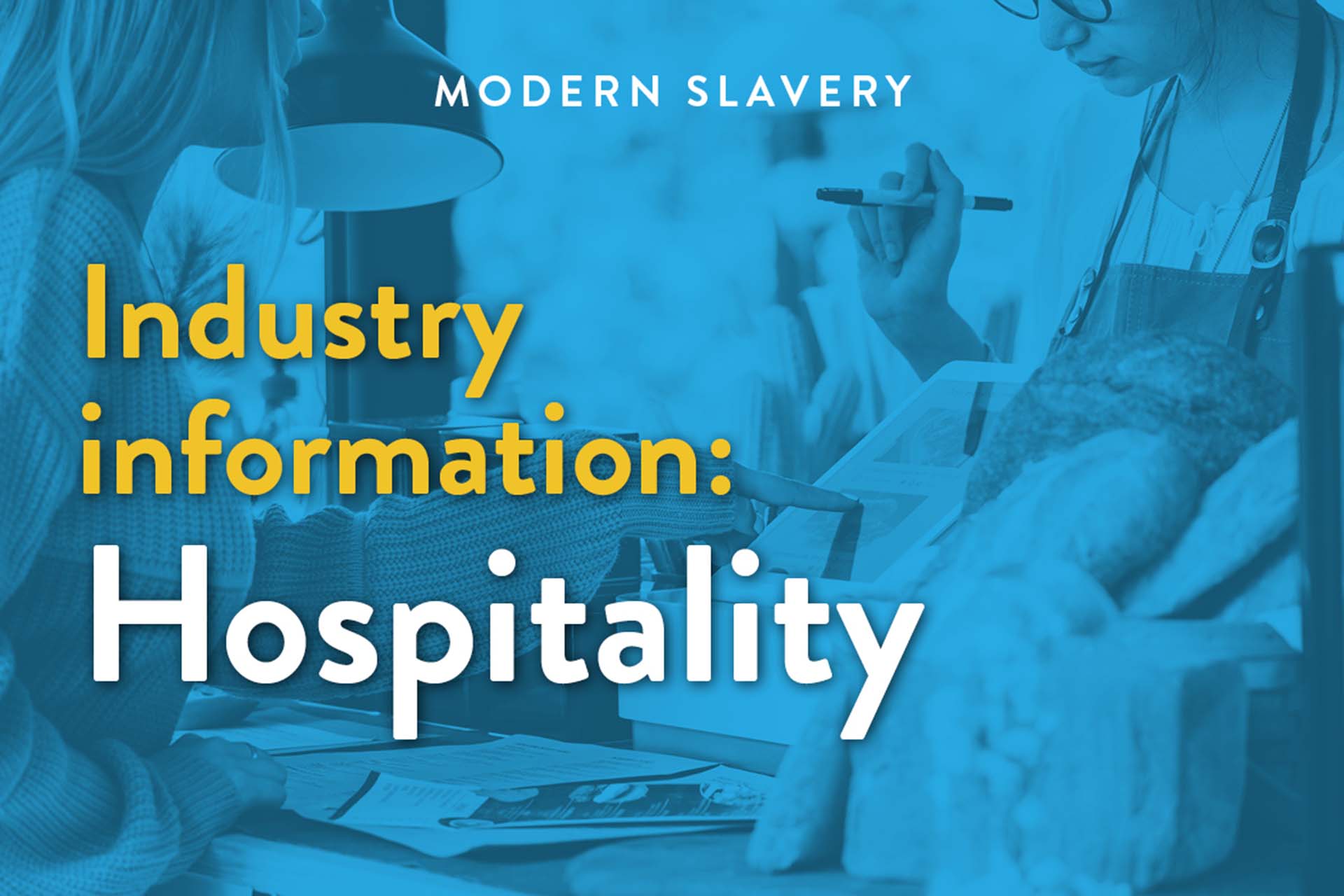
As part of our series to understand more about the situation in Leicester’s garment factories and to educate others, we are sharing some key information and resources about high-risk industries in the UK. Today’s blog looks at the hospitality sector.
Shiva Foundation has a lot of experience working with the hospitality sector to help businesses understand the risks of exploitation that exist within their operations and supply chain. That said, we recognise that there may be some great resources not listed here.
We’ve chosen to narrow the list down to select few we believe highlight the key risk areas in an accessible way. We also hope to encourage any person or business using a hotel or restaurant to take certain steps to raise awareness.
Understanding the risks
One in ten people across the globe (likewise within the UK) work in hospitality. There are key truths about the industry that make it vulnerable to exploitation:
- Many of the workers are migrants and fill low-skilled positions within the sector. The perception is that they will accept inferior wages and will be more vulnerable to poor working conditions.
- There is evidence of workers paying fees for recruitment, which can put them in debt which cannot be settled, despite ongoing wage deductions (this is called debt bondage).
- The nature of the industry, which is heavily franchised, means that the brand, owner and operator of the hospitality business may be three different companies. This can result in watered-down standards and practices.
- For hotels in particular, there is a high reliance on agency workers for roles like housekeeping and laundry. These agencies fall below the radar of regulators which can result in negative practices with little oversight from the hotel. If hotels use the cheapest agency, there is nothing to stop that agency from cutting staff wages and benefits as a result.
- Sexual exploitation is a risk for hotels in particular, who may be unwitting hosts to traffickers using their rooms for exploitation.
Union representation is low in the industry which results in workers having few avenues for raising grievances.
To learn more about the risks:
- A. Balch and G. Rankin from the University of Liverpool have published a report on exploitation and forced labour in the UK hotel sector. See here.
- The GLAA have produced industry profiles for both food services and hotels and accommodation. These touch on the risks as well as what to ask of hospitality businesses.
- This video shows some of the signs of sexual exploitation – please note that it may be distressing to watch.
- In 2019, the Financial Times reported on some of the abuses migrant cleaners face in the UK, some of whom work in hotels.
What can you do?
Whether you work for a or visit hospitality businesses, ask questions about what they have in place.
1. Do they have a modern slavery statement?
Walk Free of Minderoo Foundation, WikiRate, Business & Human Rights Resource Centre and Australian National University published a report on poor hotel compliance with the Modern Slavery Act.
2. Do they pay workers the minimum wage?
Often overlooked, minimum wage payments are a good indicator of how companies treat workers. The Department for Business, Energy and Industrial Standards publishes a name and shame list of organisations who haven’t upheld the minimum wage law. In 2018’s list, the top three companies were in hospitality.
3. Do workers know their rights?
It is worth investigating whether the business offers training on the signs and indicators of exploitation, whether they provide information to all workers (direct or indirectly employed) on their rights in the UK, and what systems they have in place for workers to raise grievances or whistleblow.
Guidance for businesses
You can point hospitality businesses in the right direction to address the risks of exploitation in their industry:
- We at Shiva Foundation created a practical toolkit for general managers to use in their hotels to address risk of exploitation.
- The University of Liverpool developed a UK Hotels Policy Guide to help businesses protect against exploitation.
- Liberty Shared created Best Practice Guidance for Franchising for the hotels to address exploitation in a multi-layered industry.
Our next post will look at the construction sector and the risks of exploitation. You can view it here.
*This is part of a blog series examining exploitation in the UK. To read our a summary of our thoughts on what happened in Leicester go here. To learn more about why exploitation happens, go here.


